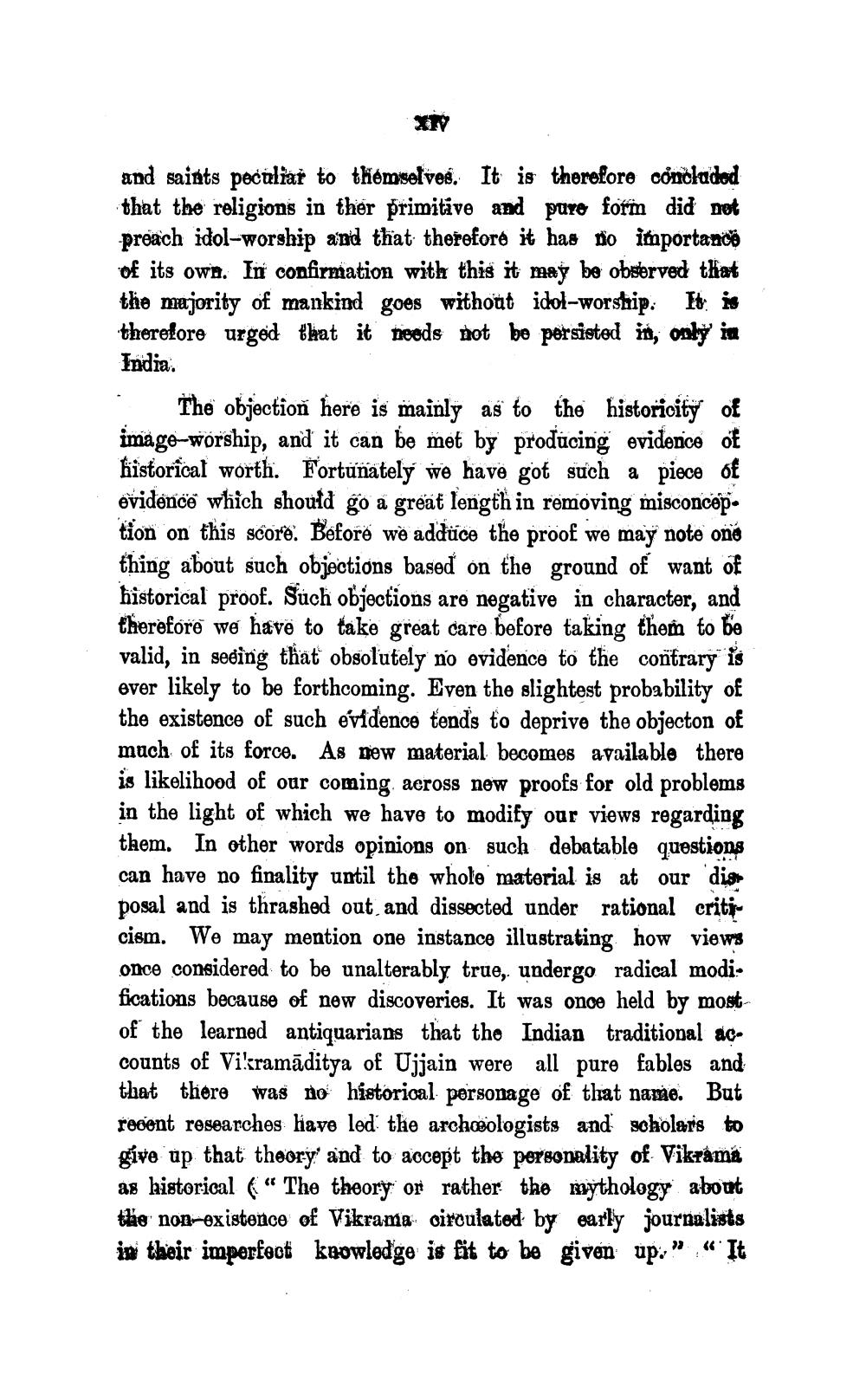________________
XIV
and saints peculiar to themselves. It is therefore concluded that the religions in ther primitive and pure form did not preach idol-worship and that therefore it has no importance of its own. In confirmation with this it may be observed that the majority of mankind goes without idol-worship. It is therefore urged that it needs not be persisted in, only in India.
The objection here is mainly as to the historicity of image-worship, and it can be met by producing evidence of historical worth. Fortunately we have got such a piece of evidence which should go a great length in removing misconcep tion on this score. Before we adduce the proof we may note one thing about such objections based on the ground of want of historical proof. Such objections are negative in character, and therefore we have to take great care before taking them to be valid, in seeing that obsolutely no evidence to the contrary is ever likely to be forthcoming. Even the slightest probability of the existence of such evidence tends to deprive the objecton of much of its force. As new material becomes available there is likelihood of our coming across new proofs for old problems in the light of which we have to modify our views regarding them. In other words opinions on such debatable questions can have no finality until the whole material is at our dis posal and is thrashed out and dissected under rational criti cism. We may mention one instance illustrating how views once considered to be unalterably true, undergo radical modifications because of new discoveries. It was once held by most of the learned antiquarians that the Indian traditional accounts of Vikramaditya of Ujjain were all pure fables and that there was no historical personage of that name. But recent researches have led the archaeologists and scholars to give up that theory and to accept the personality of Vikrama as historical "The theory or rather the mythology about the non-existence of Vikrama circulated by early journalists in their imperfect knowledge is fit to be given up.” It
66




